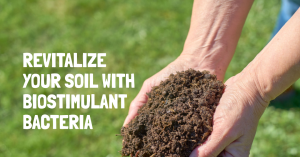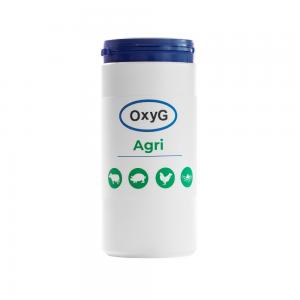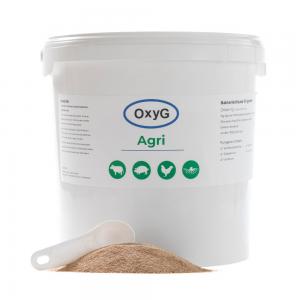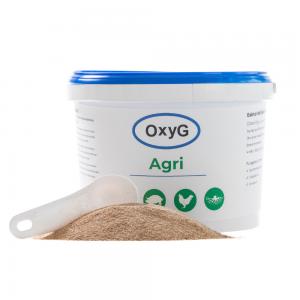- Totalt 0 kr
Manure/ Slurry
OxyG's goal is increase the value of the manure/ slurry by adding aerobic bacteria cultures.
OxyG Agri is a biological product designed to remove odor, improve the storage and handling of all livestock manure.
With OxyG Agri Cultures you get a typ of Biogas manure/ slurry with out a digestor or biogas reactor
Reduced agitation time in manure tank, lagoon, pit will save the cost of using the our bacteria product. The rest of the benefits are for free.
Works great in:
- Manure storage tank/ lagoons
- Slurry tanks/ lagoons
- Gravity manure handling
- Manure
- Urine tank
- Straw bedding
- pump/lift station
- Feedlots
Use of the Oxyg Agri product will give you this benifits:
- Odor reduction of 80% or more
•Remove or Heavily reduce the odor gases in and around the manure handling (hydrogen sulfide, H2S) (ammonia, NH3)
- Improved liquefaction of manure solids for easier pumping and spreading.
- Reduced agitator time and cost
- Better degradation of straw bedds to compost
Odor reduction during spreading: Already after 2-3 weeks after dosing in a tank/lagoon, you begin to have an effect on odor reduction when applying in the field.
Manure gravity handling systems: If you have problems with stops or gravity handling manure flow system that flows slowly and needs extra water to function. Then OxyG´'s bacteria are an alternative and will break down the manure, at the same time the manure becomes more wet and easy to flow in a gravity manure system.
Manure/ slurry tanks/ lagoons: The bacteria cultures break down and starts the liquefaction of manure solids for easier pumping and spreading of the manure tank/lagoon and make the manure easier to agitate and save cost . You get a sludge blanket that is about 20- 30 cm but is wet and easy to agitate.
Those who handling bacterial-treated liquefied manure will notice that it is much easier to handle the manure as it is easier to agitate up the tank/ lagoon, easier to pump, less stop in the distributor to ramp, easier to spread in field
Solid manure: The bacteria will help with the composting process, and the smell is reduced when spread.
Pump tank: By dosing bacteria in the stable, the manure will be more irrigated, which makes the manure easier to pump.
Urine tank: Removes / greatly reduces ammonia and hydrogen sulfide odor
Horse manure container: Improves the composting process in the container, extends the emptying intervals, max 4 horses / container

Oxyg's highly concentrated aerobic bacteria cultures of Bacillus cultures makes the manure more liquefied, very good reduction of odor in stables and in field of all types of manure and improves the economy that exists around manure handling
By adding 8 different Bacillus cultures to the manure, the bacteria change the microbial process in the decomposition process which results in a gradual reduction of odor by the bacteria's enzymes neutralizing the odor. Straw, grass and sawdust, feed are degraded and make the manure solids more liquid, easily pumped and agitate. In the decomposition process, the odor are reduced by 80% or more.
With bacteria cultures in the manure/slurry, the manure becomes smular to biogas manure, the bacteria cultures makes the nutrients in the manure to be more easily accessible to be absorbed by the plant and there is also less nutrient losses in the field.
Enzymes from the bacteria cultures used in the decomposition process in the manure tank reacts with water it form extra ammonium nitrogen and nitrate nitrogen, all according to the Nitrogen Cycle.
The temperature in the manure is important for the activity of the bacteria. Below 5 degrees Celsius in the manure tank/ lagoon, the microbial activity decrise considerably. Therefore, it is important that the dosing takes place via the stable's manure chute or slatted floors.
Bacillus bacteria can be growth stimulating for plants.
This means that microorganisms that are added to the plant or the rhizosphere stimulate natural processes and improve the uptake and utilization of nutrients, improve abiotic stress tolerance and improve the quality of the crop.
Google keyword: Bacillus growth stimulator, read the scientific articles.
Bacteria in plant cultivation are on the rise and you will see a lot happen in this topic.
Swedish agricultural University has worked a lot with different bacteria and growth stimulation. Professor Johan Meijer is a big name in this field. Feel free to Google Professor Johan Meijer's scientific articles and what cunning has done in this topic.
The Rural Economy and Agricultural Societies has Dr. Zahra Omer at the Uppsala office who can answer your questions on the topic Bacillus as growth stimulator.
It is about getting the "right bacteria" as a biofilm to the plant's root system. The Bacillus bacteria group is such group of bacteria that agricultural universities around the world are look at.
When the seed grows in the soil, some bacteria that are around the seed will probably become part of the biofilm to the plant, this is where we have a chance to influence by favoring certain bacteria in the soil. Therefore, it is cheap to let bacillus bacteria pre-cultivate in manure. This means, when spreading manure on the field, you get more bacteria per m2, which means that you have a greater chance of getting the right bacteria as a biofilm.
It is about getting the right bacteria on to the root system that helps the plant absorb nutrients. Bacillus bacteria can help the plant in many different ways, the Bacillus bacterium forms, among other things, amino acids that can stimulate the hormone balance in the plant so that the plant produces a better root system.
A larger root system means that the plant absorbs nutrients better, larger plant, more harvest, can withstand drought better etc.
If you not use Bacillus bacteria in the manure, you can also buy these amino acids that the bacteria produce in a more expensive liquid form. It is called BIOSTIMULATION in those who sell fertilizers. Common outside Sweden's borders, not so common in Sweden. The amino acids are mixed in the water with chemicals and applied with crop sprayer.
Dosage is calculated on the annual amount of manure/Slurry. Normal amount of manure solids is 1kg per 1000 m3, Increase the dosage by 50% for thick manure.
Dosing directly in the manure chute or under the slatterd floor.



